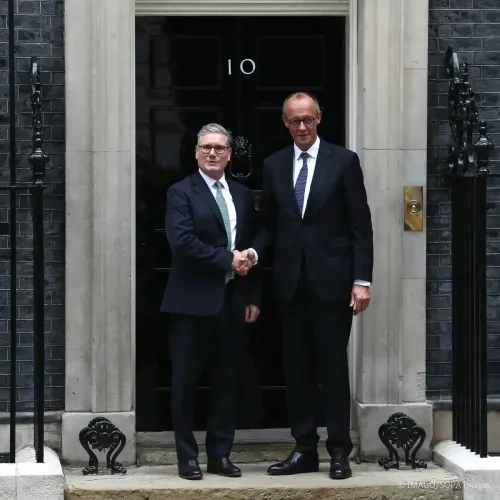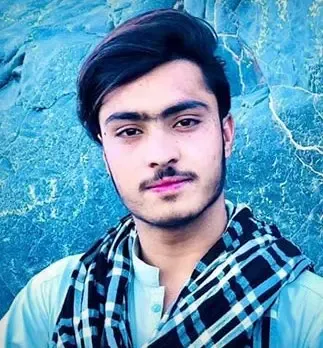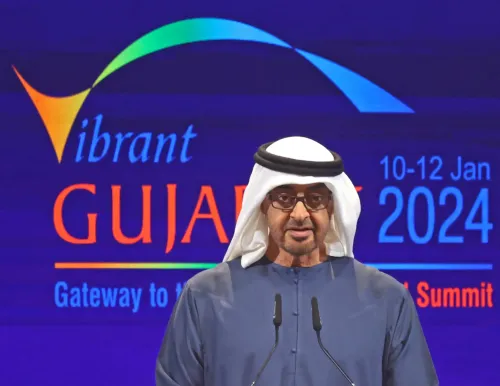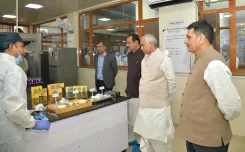South Korean Constitutional Court to Decide on Yoon's Impeachment by Mid-March

Synopsis
Key Takeaways
- Constitutional Court ruling expected mid-March.
- Yoon Suk Yeol faces impeachment over martial law.
- At least six justices needed to uphold impeachment.
- Yoon argues his actions were for governance.
- Snap elections possible if Yoon is removed.
Seoul, Feb 25 (NationPress) The Constitutional Court of South Korea is poised to rule on the fate of President Yoon Suk Yeol around mid-March, determining whether he will be removed from office or reinstated. This decision follows the conclusion of his impeachment trial hearings on Tuesday regarding his controversial martial law declaration.
The court concluded its proceedings after 11 sessions, 73 days post the National Assembly's impeachment vote against Yoon for his brief imposition of martial law on December 3.
Following the final arguments in the impeachment case, the court's eight justices will engage in private deliberations before casting their votes.
For the impeachment to be upheld, at least six of the justices must vote in favor. The court comprises nine members; however, there is currently one vacancy.
Legal analysts anticipate a ruling could be reached within two weeks, taking into account the precedents set by previous presidential impeachment cases and the seriousness of this matter.
The crux of the issue is whether Yoon's martial law declaration breached the Constitution and existing laws.
The impeachment motion charges Yoon with violating the Constitution by declaring martial law without a national emergency and neglecting proper procedures, such as convening a Cabinet meeting and notifying the Parliament.
Yoon contends that his martial law declaration was a governance measure designed to caution the opposition party regarding its incessant impeachment attempts against government officials and its moves to slash the government budget.
If Yoon, who began his five-year term in May 2022, is officially removed, a snap election will be organized within 60 days. Conversely, if the impeachment is rejected, Yoon will immediately resume his presidential duties.
Yoon has expressed that, if reinstated, he will dedicate the latter part of his term to pushing for constitutional amendments and political reforms to ensure a well-functioning nation for future generations.
"I will focus on rapidly gathering the people's will and advancing constitutional amendments to create a Constitution and political framework that resonates with societal changes," Yoon stated during the final hearing, emphasizing his commitment to national unity.
If reinstated, he also plans to prioritize foreign affairs while granting the Prime Minister greater authority over domestic issues to more effectively tackle both international and domestic challenges.
Currently, Choi Sang-mok, the Deputy Prime Minister and Finance Minister, is fulfilling the caretaker role following the impeachment of Prime Minister Han Duck-soo on December 27.
The stakes are significant as Yoon's mishandled martial law declaration has led to an extended period of political turmoil amidst economic and security dilemmas both domestically and internationally, according to reports from Yonhap news agency.
Recent polls indicate that a majority of South Koreans support Yoon's impeachment, yet his fervent supporters have staged protests outside the court for several weeks, opposing his ousting.
Yoon is the third South Korean President to face impeachment in the last two decades.
The late President Roh Moo-hyun was impeached in 2004 for violating election laws but was reinstated by the court, while in 2017, the court unanimously removed President Park Geun-hye due to corruption and abuse of power.










